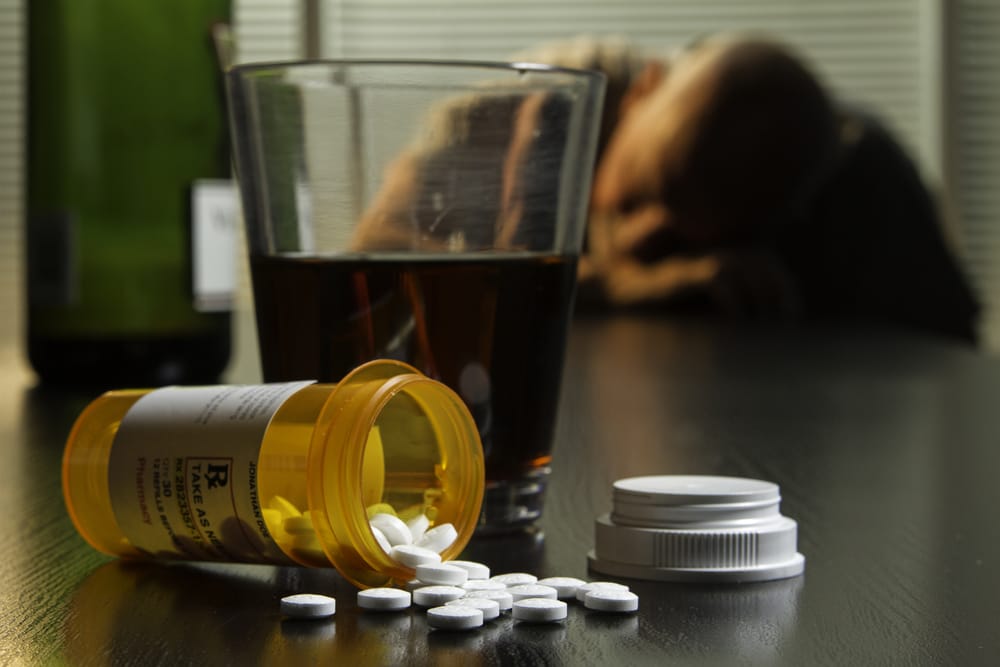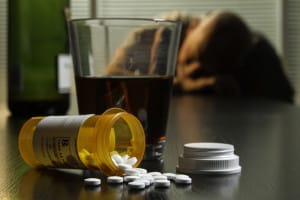Addiction Treatment
Mixing Zoloft and Alcohol

Written By:

Table of Contents
As a general rule, you should not mix alcohol and antidepressants. This general rule holds true for sertraline hydrochloride, which is the generic chemical name for Zoloft. Zoloft is a serotonin reuptake inhibitor that elevates serotonin levels to alleviate symptoms of depression. Zoloft and alcohol both affect the manner in which your brain processes and uses certain chemicals. When you expose your brain to both substances simultaneously, the interactions can be dangerous.By itself, Zoloft will lower your blood pressure and heart rate. When you add alcohol to this mix, you may experience deeper feelings of depression. The combination can also increase your sensations of anxiety, fatigue, and irritability. Moreover, you may foster a sense of restlessness and loss of appetite. The overall benefits that a person will feel from taking Zoloft reduces when he combines Zoloft and alcohol.
Consequences of Mixing Zoloft and Alcohol

Somewhat problematic is the fact that Zoloft can cause increased cravings for alcohol in some individuals. If you find that your cravings for alcohol are increasing, you must contact your physician to discuss alternatives to Zoloft for depression. The same holds true if you sense that you have increasing urges for more frequent or larger quantities of Zoloft. Antidepressants are generally not addictive. However, they can be habit-forming and an individual can develop a physical dependence on it. Unlike physical dependences on addictive drugs, a Zoloft user will not experience the same withdrawal symptoms and cravings. If you persist in using Zoloft and alcohol, you may be reacting to deeper problems. Overworked physicians are quick to prescribe Zoloft when their patients describe symptoms that are characteristic of depression, largely because the drug is perceived to be safe and non-addictive. Zoloft is a useful pharmaceutical product when used to treat mild depression. However, Zoloft users should remain aware that this drug is not a cure-all for every psychological malady. Wherever possible, the prescribing physician should monitor a Zoloft patient’s progress and response to the drug, including the extent to which the patient mixes Zoloft and alcohol. Regular monitoring may reveal patterns and symptoms that are not readily apparent from a single consultation with a physician.
Overcome Substance Abuse At The Last Resort Recovery
Zoloft users may be quick to discount the dangers of mixing the drug with alcohol, particularly if they have done so regularly with no apparent ill effects. Drugs like Zoloft and alcohol that alter a user’s brain chemistry can have subtle effects that mask greater problems.Seek help today and receive drug treatment that can change your life. Our rehab programs will lead you on a path to sobriety. Moreover, our family program will give you the support you deserve.
Please contact the Last Resort Recovery Center near Austin, Texas, at 512-360-3600 if you have questions or concerns about your own use of Zoloft and alcohol. We can provide a confidential consultation of your situation and symptoms, and point you in the right direction to address any issues that may not have been addressed when you first started using Zoloft.
